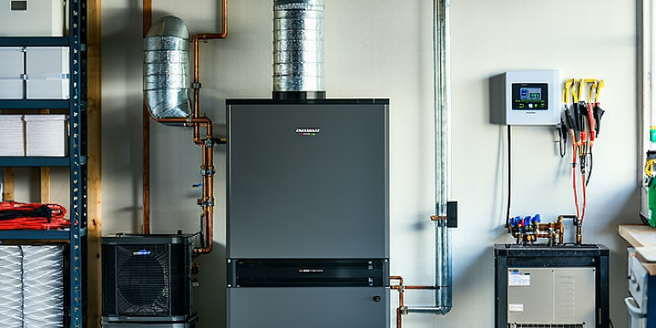Maintaining Hvac Systems Inexpensively

Understanding The Basics Of HVAC Systems
Understanding the basics of HVAC systems is crucial for maintaining them effectively. HVAC stands for Heating, Ventilation, and Air Conditioning. It refers to the various systems used for moving air between indoor and outdoor areas, along with heating and cooling both residential and commercial buildings. A deeper understanding begins with knowing the components: air filters, ducts, thermostats, and humidifiers. Regularly checking each part can prevent major issues. For example, changing air filters every one to three months can improve efficiency and air quality. Familiarizing yourself with these basics not only helps in identifying minor problems but also in making informed decisions when repairs or replacements are needed. Consequently, understanding your HVAC system will enable more confident, proactive maintenance, potentially saving significant time and cost over the long term.
Regular DIY Maintenance Tips
Regular DIY maintenance can greatly extend the life of your HVAC system while saving on repair costs. Begin with simple tasks like replacing air filters every few months to enhance efficiency and air quality. Clear debris from outdoor units to ensure efficient airflow and avoid obstruction. Inspect your thermostat settings regularly to confirm they are optimized for energy savings at different times of the day and season. It is wise to clean ducts and vents as accumulated dust can hinder airflow and reduce system efficiency. Listening for unusual noises can also indicate parts in need of attention. Moreover, sealing any visible leaks in ducts can improve system performance. With these DIY tasks, homeowners can maintain a comfortable environment affordably, reducing the likelihood of costly repairs while boosting overall energy efficiency.
Choosing Cost-Effective Tools And Products
Selecting the right tools and products for HVAC maintenance can make a crucial difference in managing costs. Start with energy-efficient air filters, which can improve system performance and reduce energy expenses. Programmable thermostats are wise investments as they help in automatically adjusting temperatures to save energy when heating or cooling is not necessary. When considering cleaning products, opt for high-quality ones that are specifically designed for HVAC systems to prevent damaging delicate components. Additionally, purchasing a simple vacuum tool for duct cleaning can be a cost-effective alternative to professional services. It is equally important to invest in durable protective covers for outdoor units to safeguard against harsh weather conditions. By choosing cost-effective tools and products, not only are you ensuring the longevity of the HVAC system but also resulting in significant long-term savings.
When To Call A Professional
While DIY maintenance is effective for routine tasks, there are times when calling a professional is essential. If your HVAC system begins to emit unusual sounds or odors, it may indicate a deeper issue that requires expert attention. In cases where the system stops working entirely, or consistently fails to maintain comfortable temperatures, technicians are necessary for accurate diagnostics and repairs. Water leaks, which can indicate drainage blockages or refrigerant issues, should be examined by professionals to prevent serious damage. Additionally, electrical problems or irregularities should not be addressed on a DIY basis due to safety risks. Regular professional inspections, at least once a year, can help in identifying potential issues before they become costly repairs. Knowing when to call a professional ensures safety, system longevity, and continued performance.
Energy-Saving Tips For Lower Bills
Optimizing the energy usage of your HVAC system can significantly reduce your utility bills. Start by installing a smart thermostat, which allows for programming temperature settings based on your schedule and preferences, ensuring efficient energy use. It is also beneficial to keep blinds or curtains closed during the day to prevent heat buildup, reducing the need for excessive air conditioning. Regularly checking and sealing cracks or gaps around windows and doors keeps the conditioned air inside your home, enhancing efficiency. Maintain proper insulation in your home, as this can significantly lower heating and cooling costs. In addition, keeping the HVAC system well-maintained through regular filter changes and cleaning ensures it operates at peak performance. These energy-saving strategies not only reduce utility bills but also extend the lifespan of your HVAC system.
Seasonal Maintenance Checklists
Creating and following a seasonal maintenance checklist ensures that your HVAC system operates efficiently throughout the year. In spring, focus on clearing debris from around the outdoor unit and checking refrigerant levels. Summer involves ensuring the air conditioning system can handle increased usage by replacing filters and inspecting ducts for leaks. Moving into fall, it’s time to prepare the heating system by testing thermostats and ensuring vents are unobstructed. Winter calls for checking that heating equipment functions efficiently, changing filters, and keeping the system free from ice or snow buildup. Regular seasonal checks prevent system overload, ensuring that it runs effectively under different weather conditions. These preventive measures are not only economical but also improve indoor air quality and prolong the life of the system.